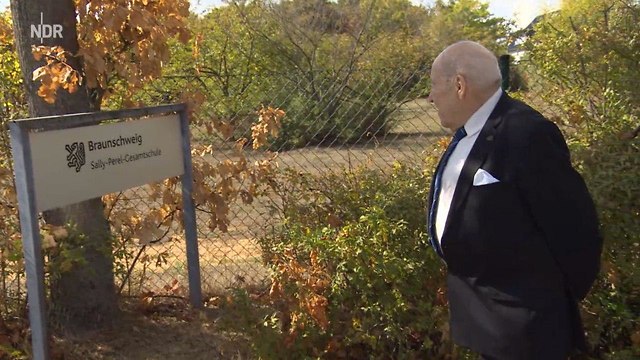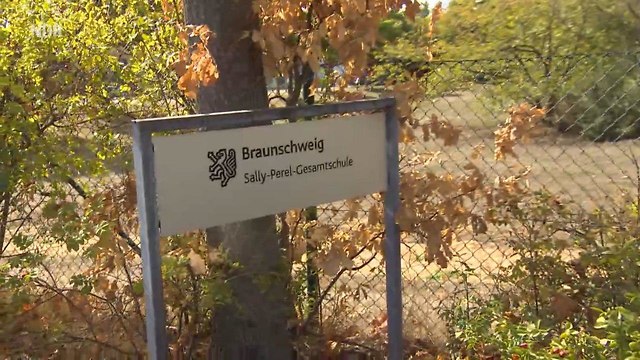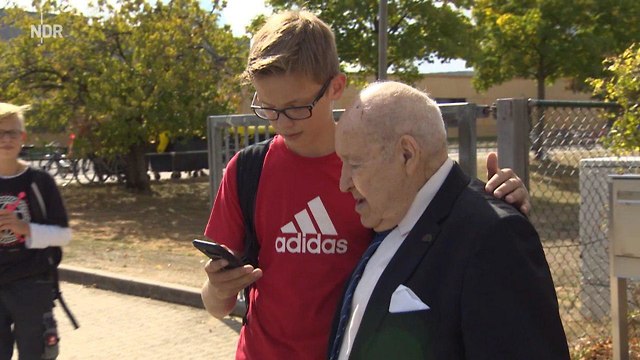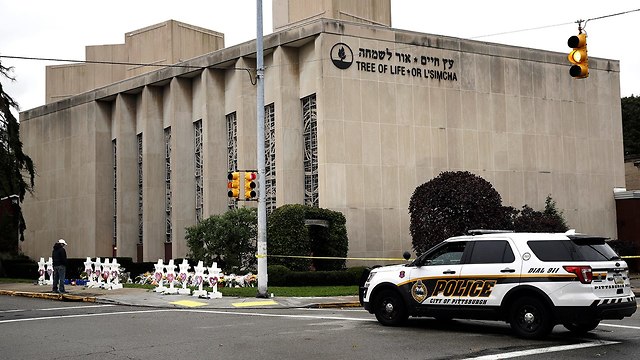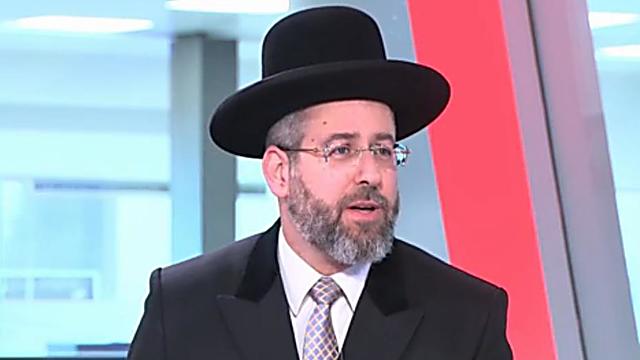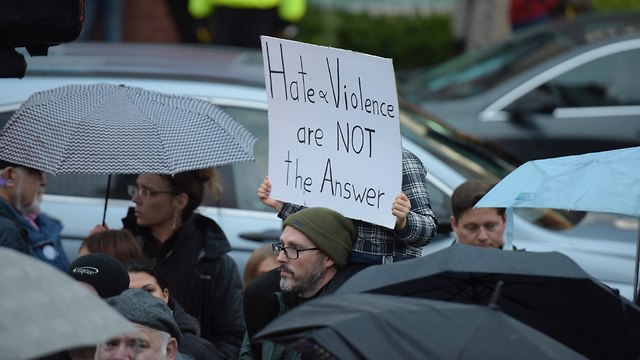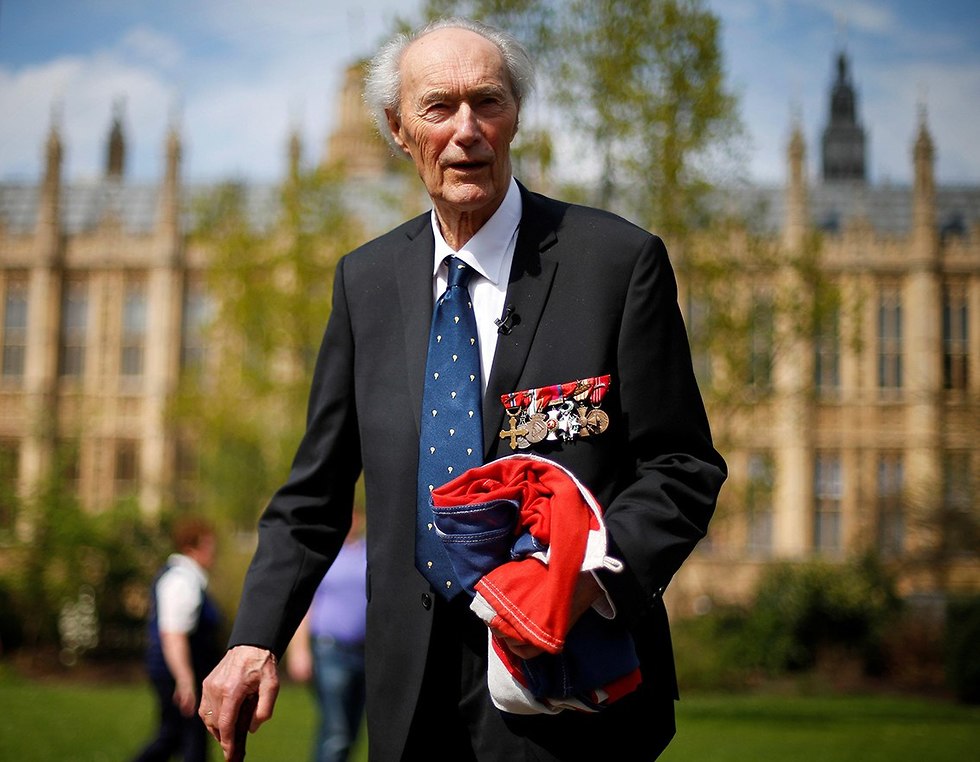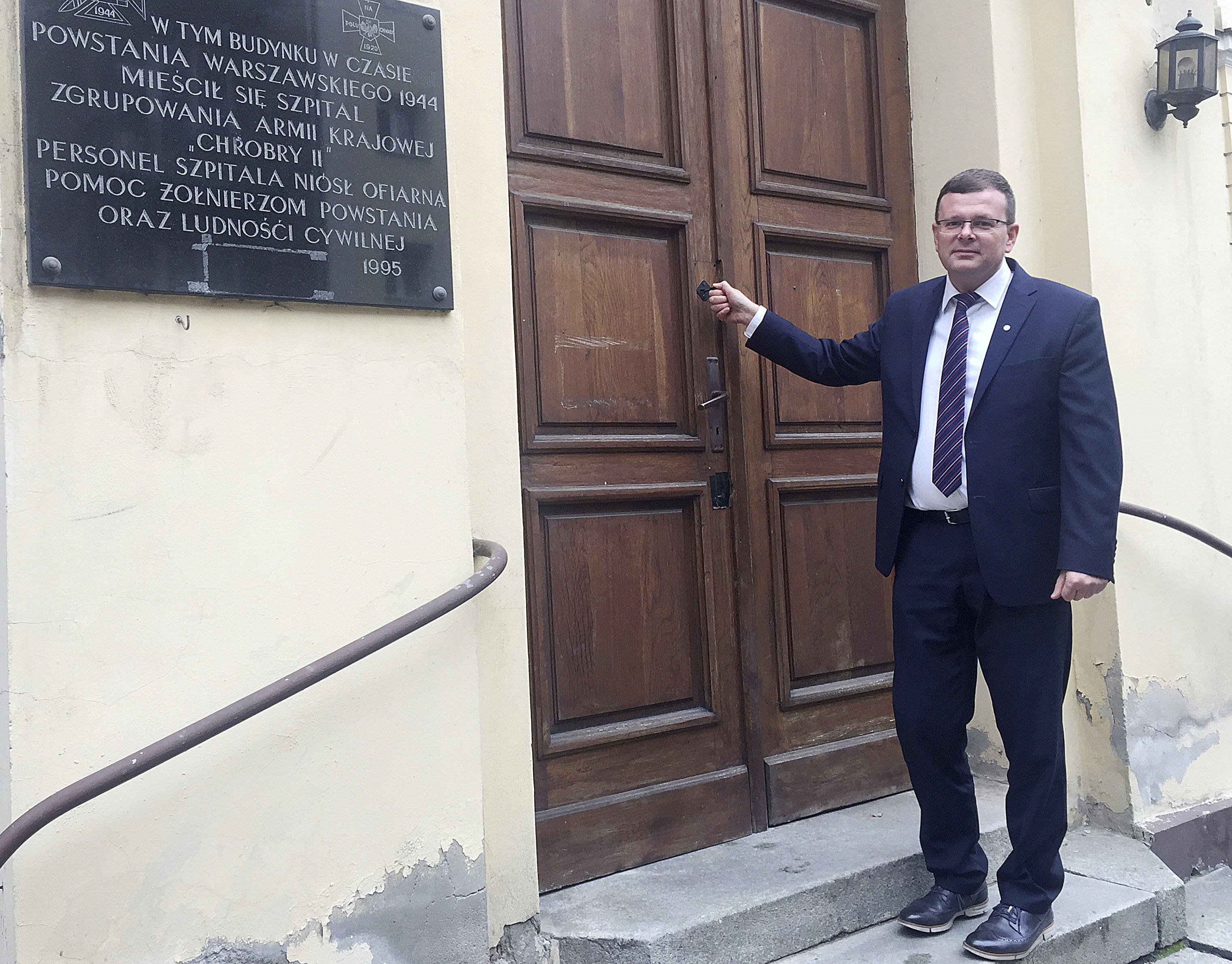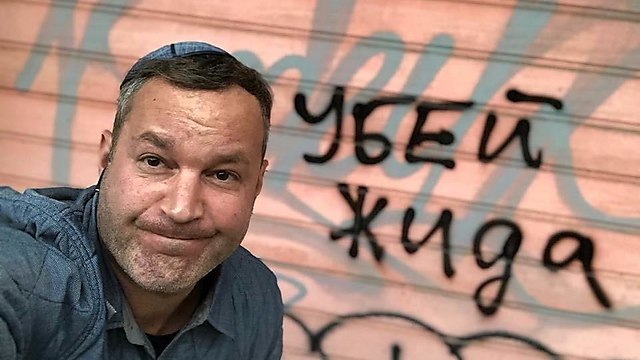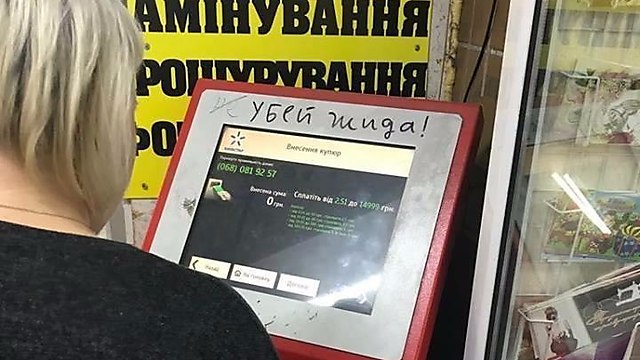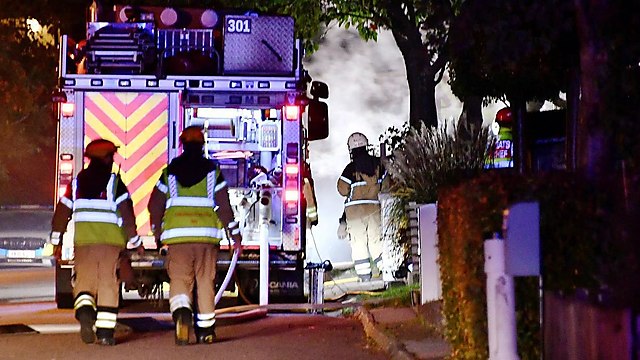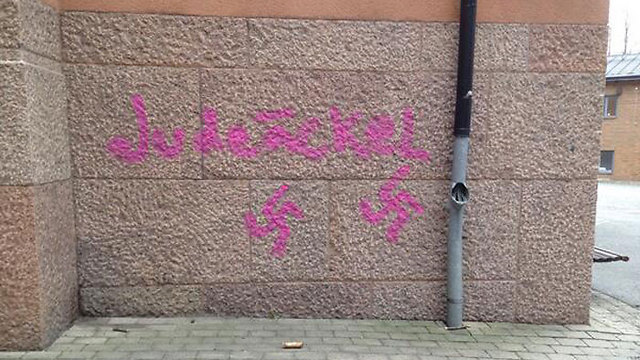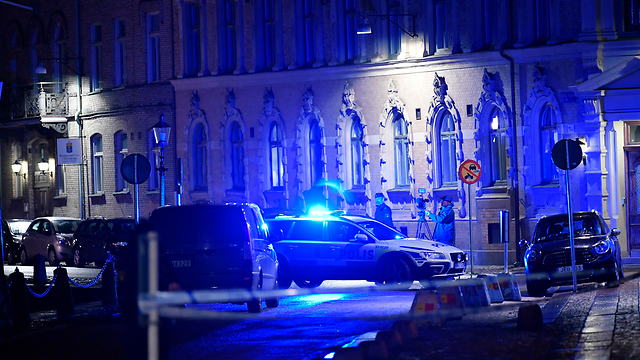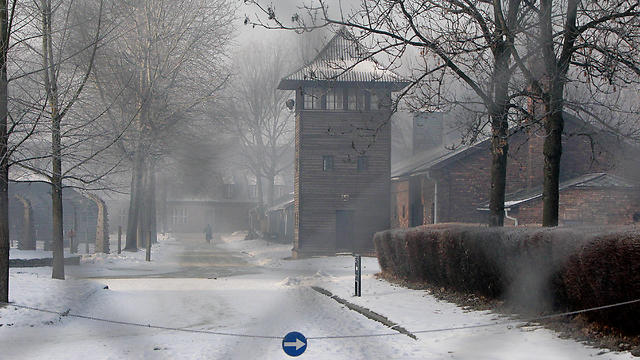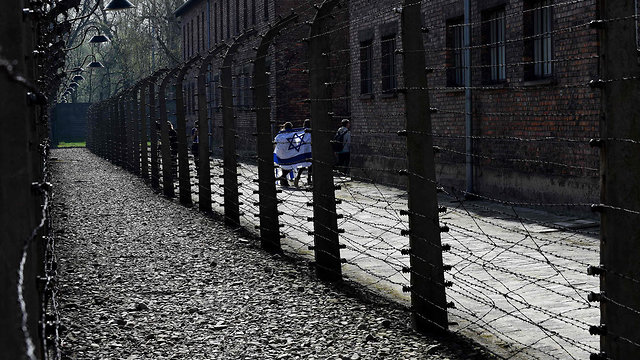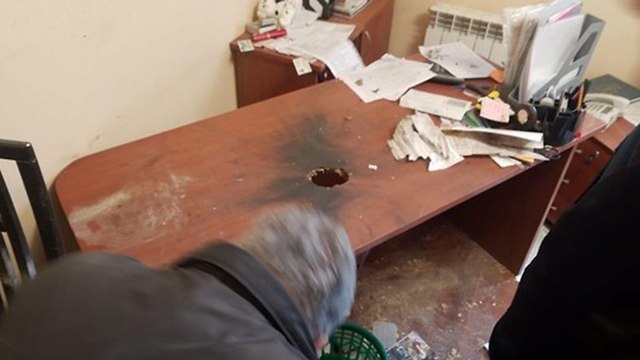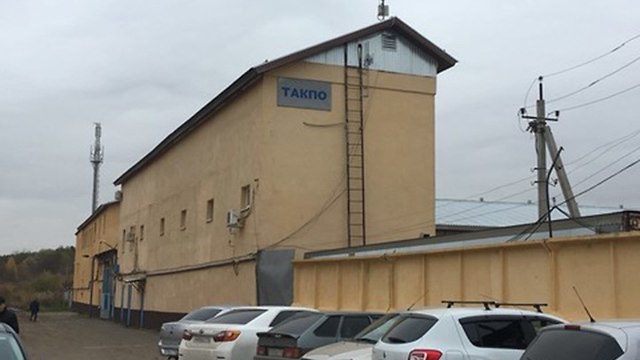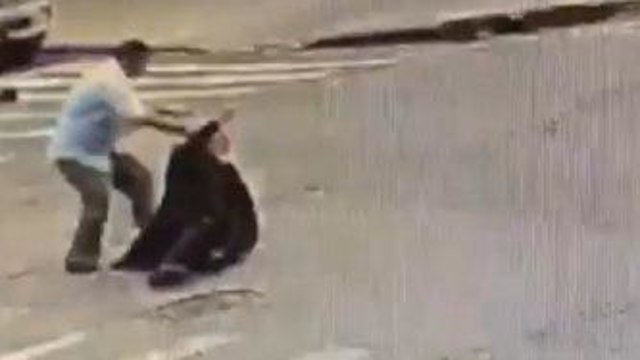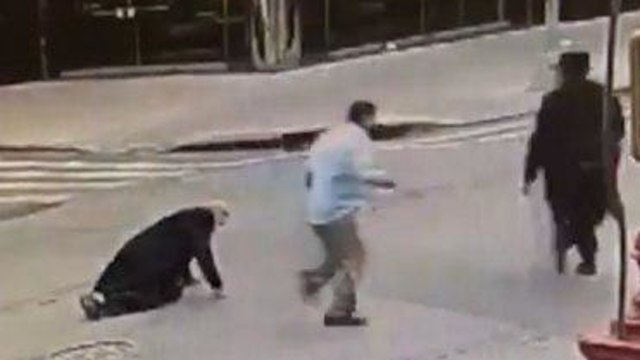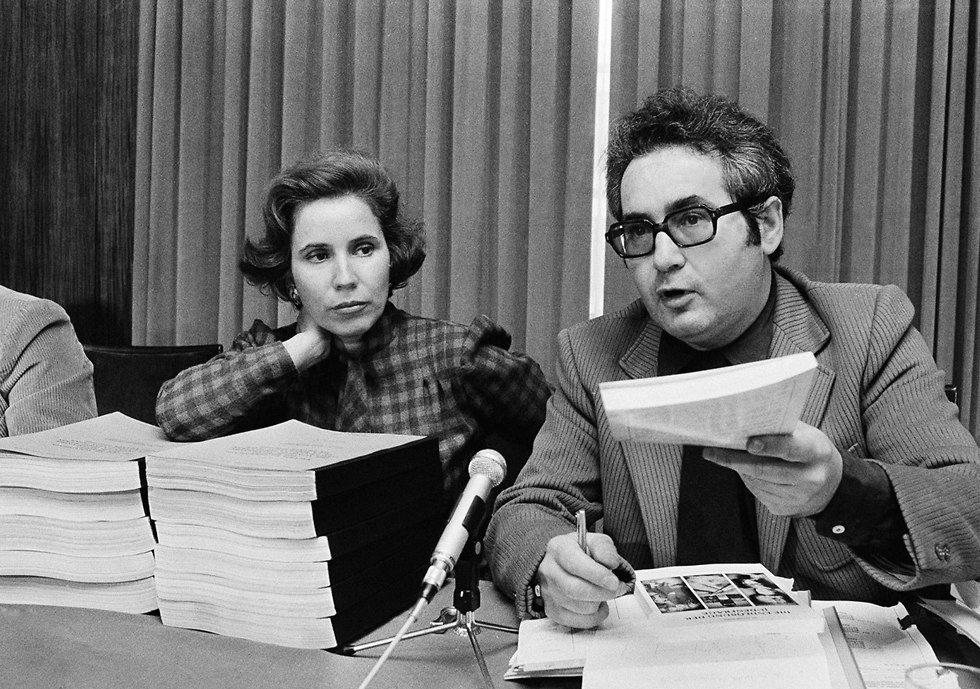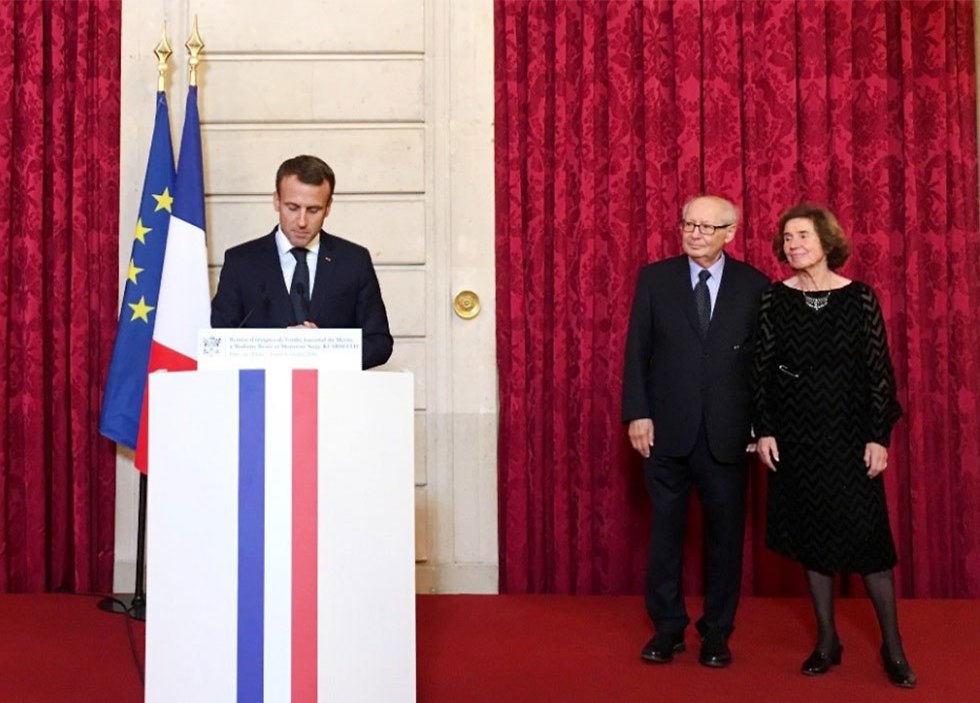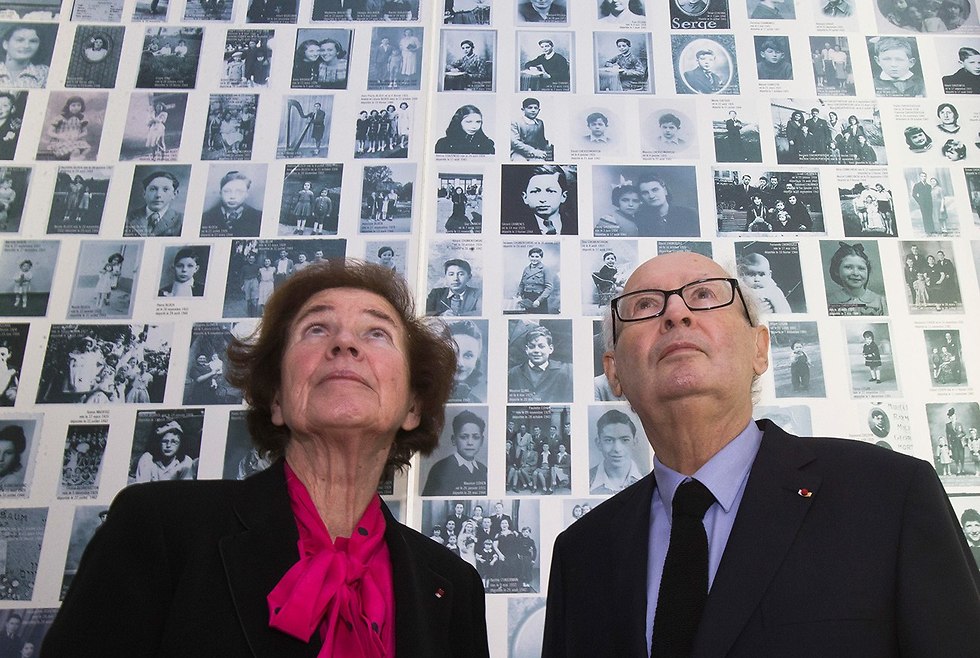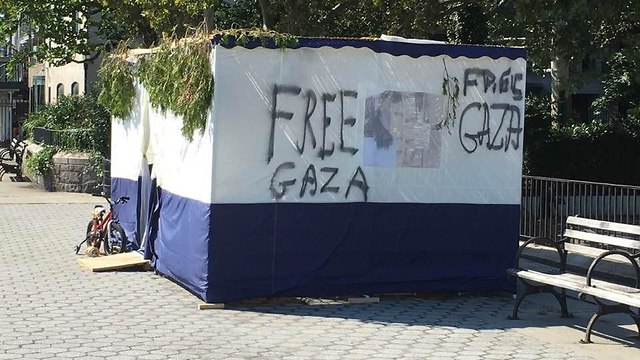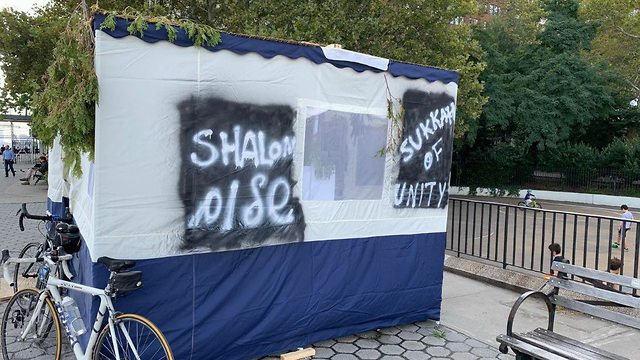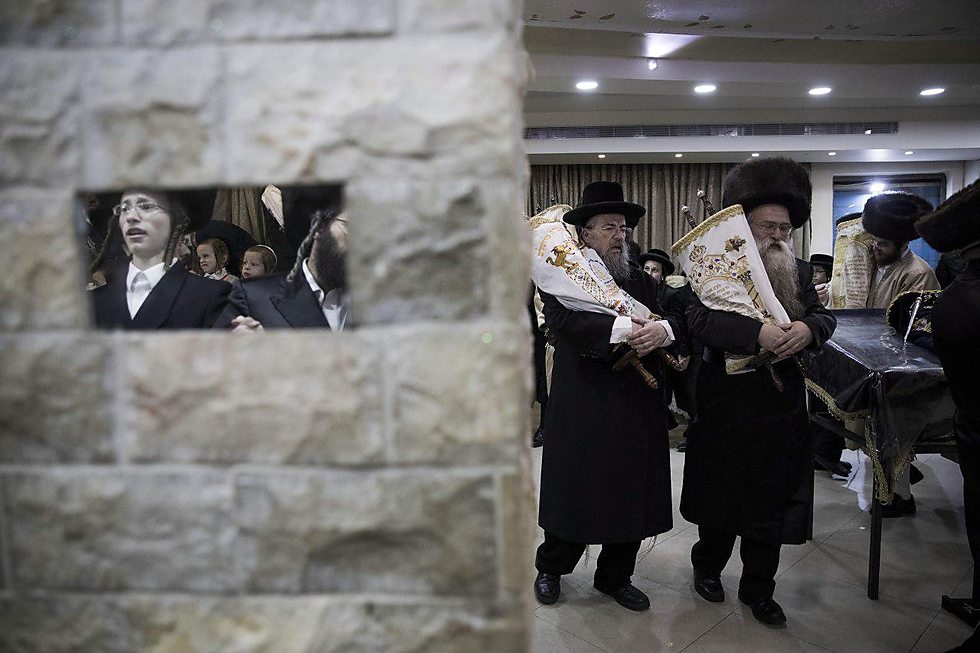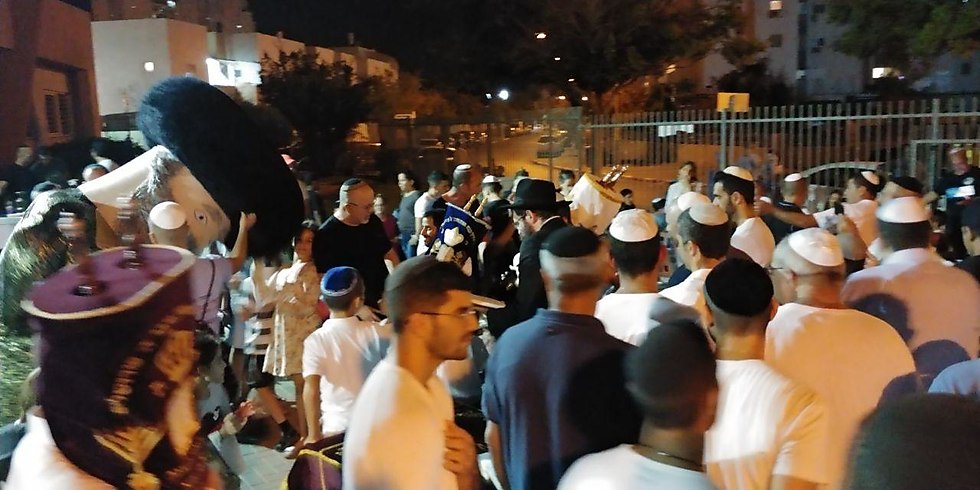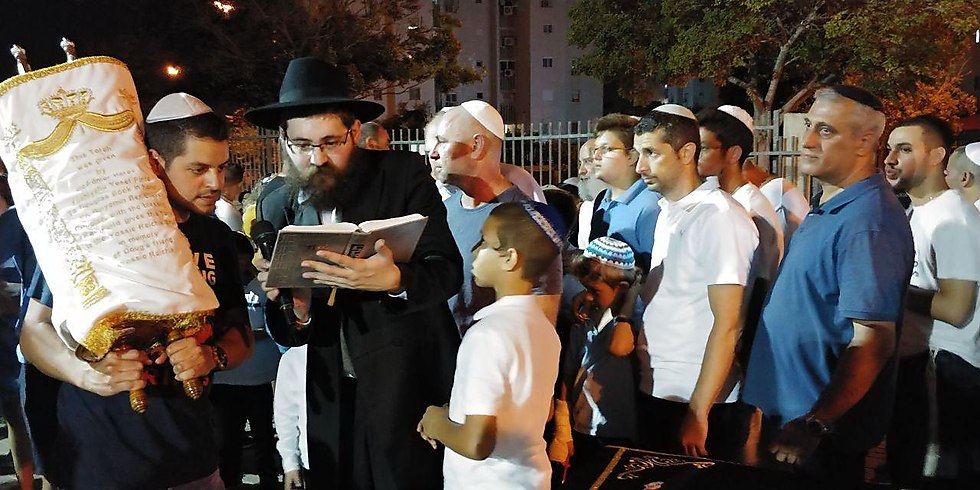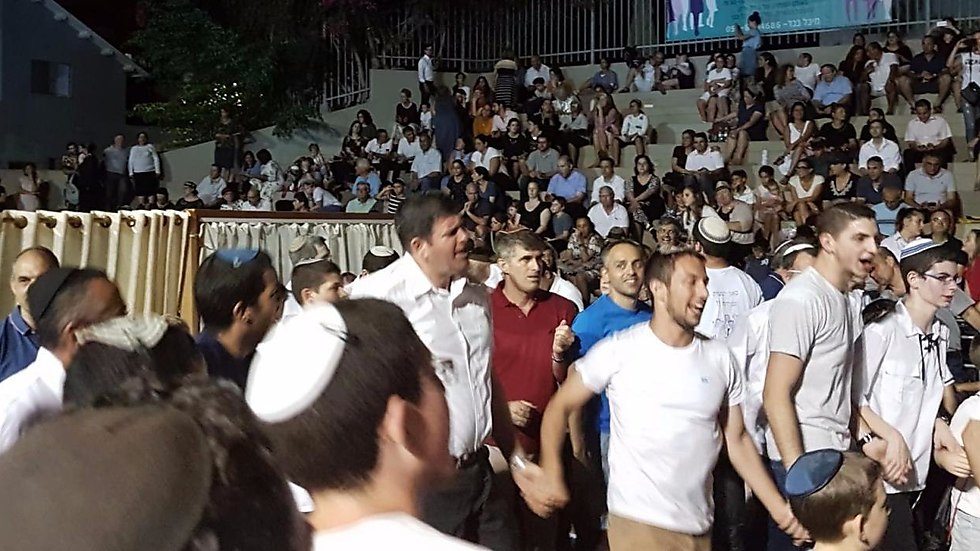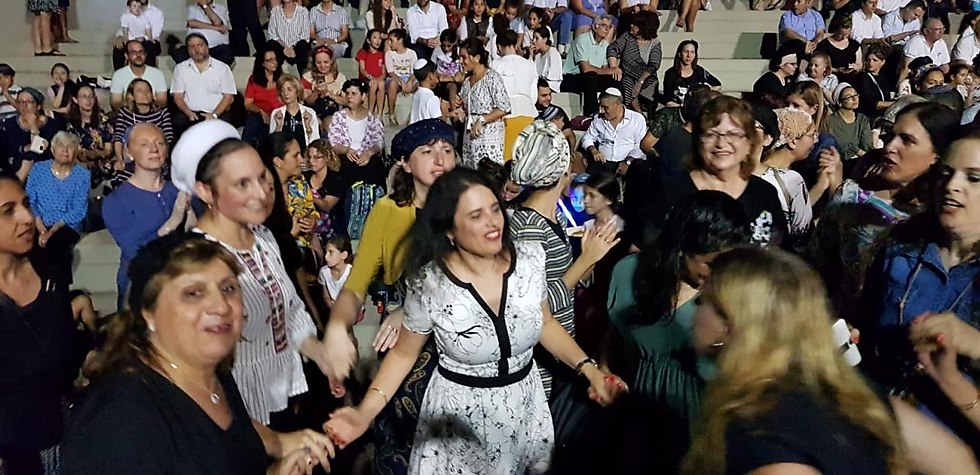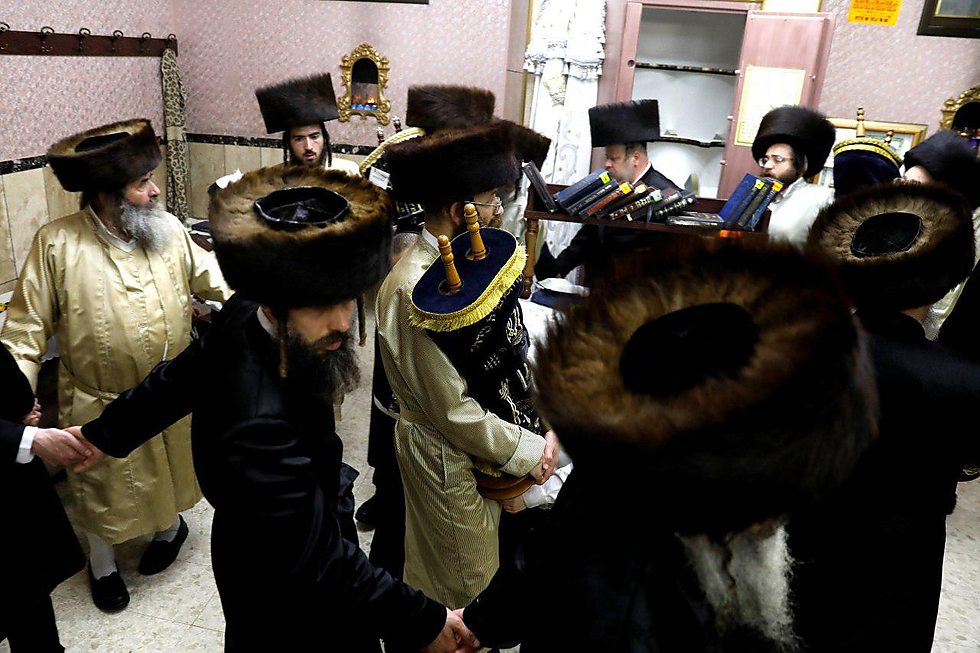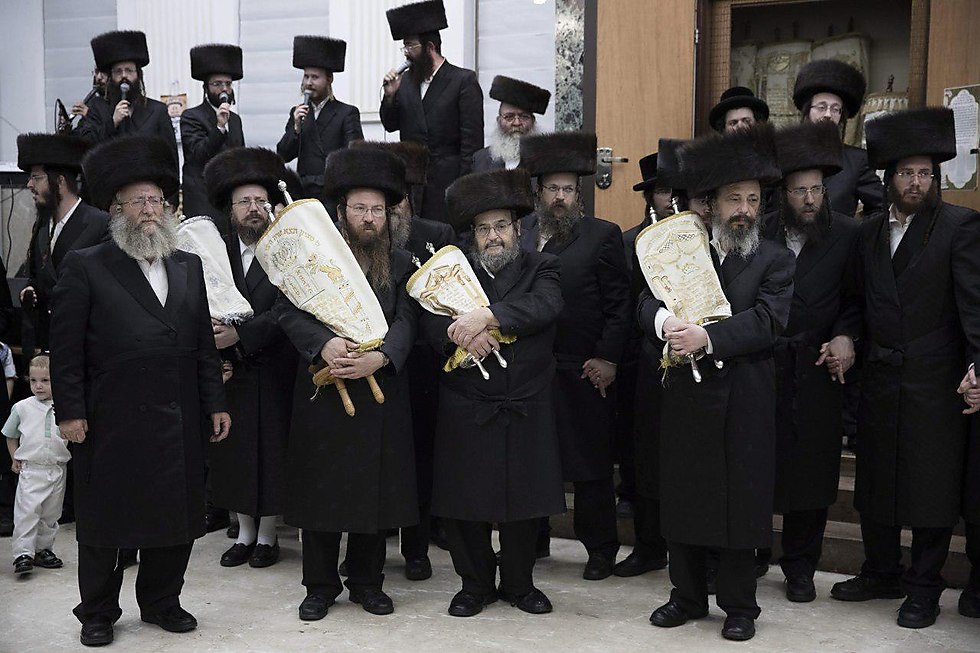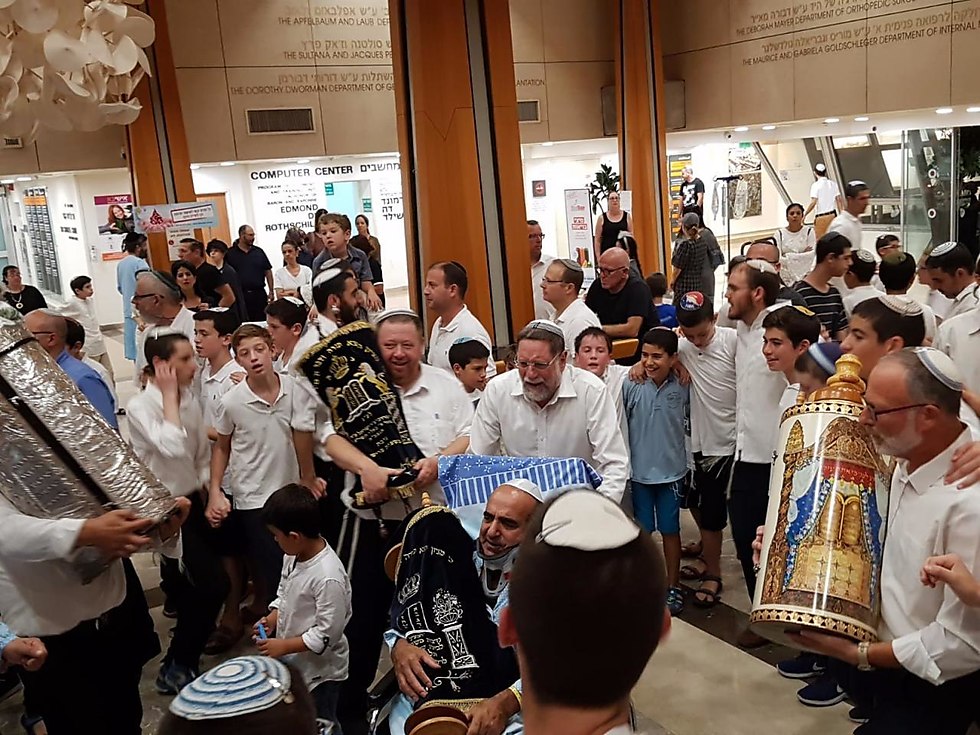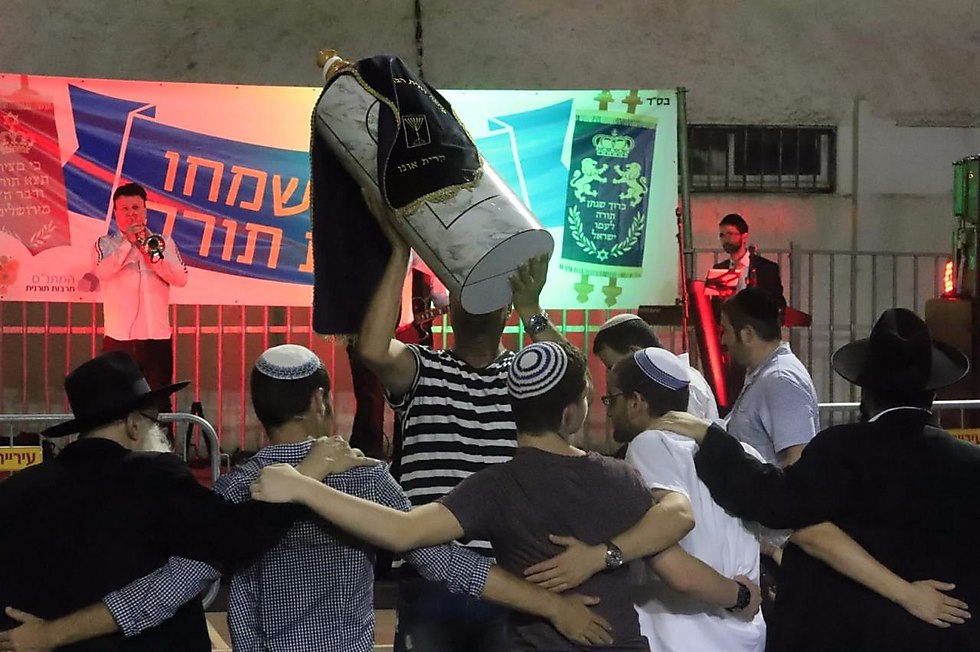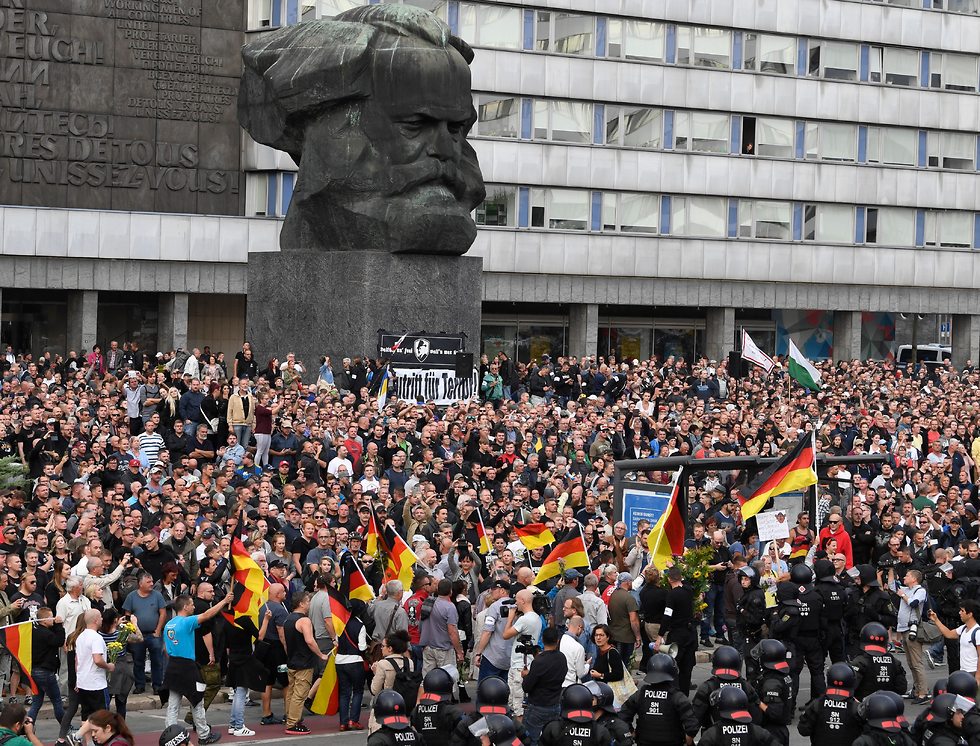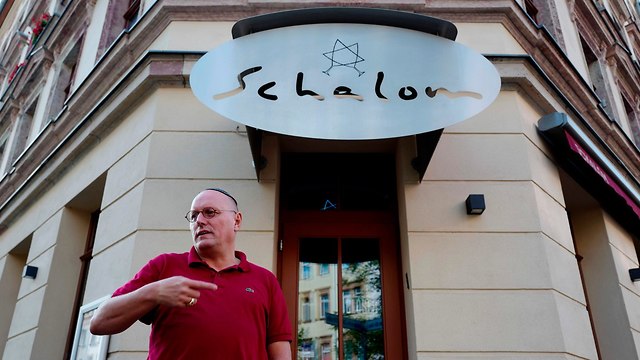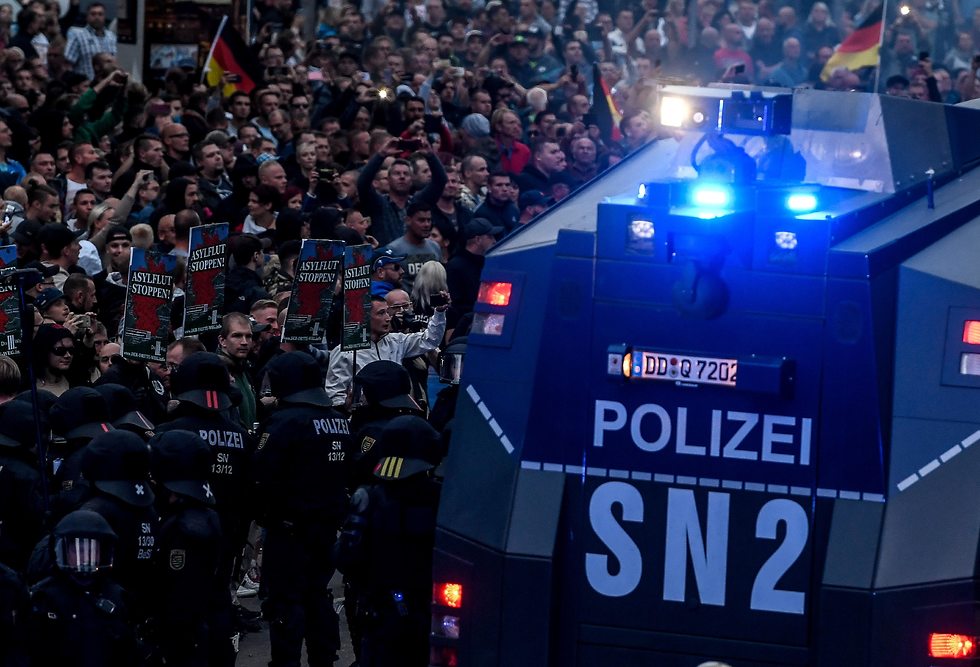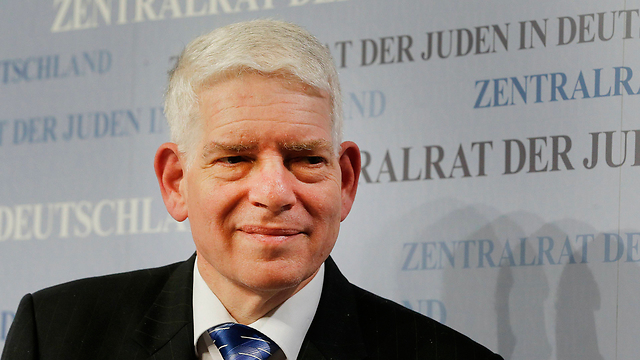Why didn’t you leave Poland for Israel with Dr. Shor's family in 1946, and stayed in a displaced persons' camp instead? I ask Cela Goldhar. “I stayed so I could wait for my parents, I believed that my mother was looking for me,” she answers with a wry smile.
Cela Goldhar (née Armal) was eight years old when the World War Two ended for her in 1944. A beautiful Jewish girl with curls the color of Polish wheat, and eyes the color of the Polish skies. She knew how to cross herself, to say the thanksgiving Catholic prayer, and to call the Polish family with whom she hid under an assumed named “Grandma” and “Grandpa.”
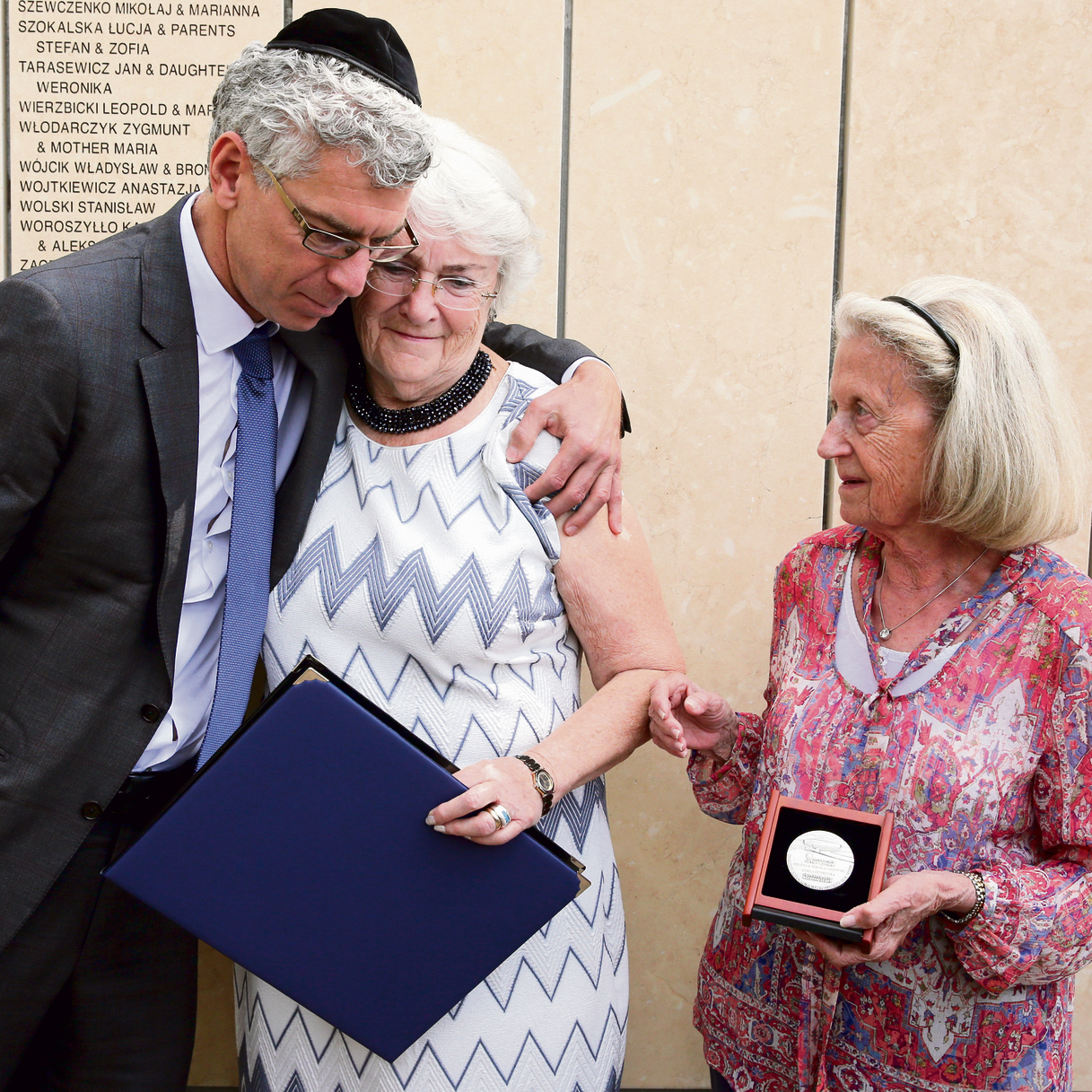
Mitchell and Cela Goldhar, with Ribzinski (middle)
Her parents were a vague memory: when she was five years old, the Nazis captured her town Styri (which was one third Jewish, one third Polish and one third Ukrainian) and when she was five and a half her parents, possibly only her mother, handed her over to a 40-year-old Polish teacher, Anila Dembinski, to be smuggled out of the Ghetto to the Aryan side.
Anila, married with a two-year-old daughter, Barbara, hid Cela in their apartment for a number of months, until the neighbors began to suspect and snoop around. The punishment for those hiding Jews was immediate execution—for them and their entire immediate family.
Anila took Cela by overnight train to her parents Mikolai and Helena Sayovski, who raised her as their granddaughter in the town of Czortkow.
After the Red Army freed the town in 1944, local Holocaust survivors began to search for Jewish children that were hidden with Poles and Cela was found by Dr. Israel Shor.
“I saw him wandering around the house with rabbis,” recalls Cela, today a fragile woman 82 years of age.
The Shor family, who survived the Holocaust by hiding in the basement of a Polish family, took Cela in. In 1945 they moved to the large Polish city of Krakow, before moving on to the land of Israel.
Cela insisted on staying in the destroyed Poland while pining for her parents. For two years she was moved to three different orphanages and held on to the one and only prewar picture she had of herself and her parents taken in the summer of 1939. A happy, smiling, loving family. All, with the exception of Cela, were murdered during the Holocaust, in all probability at the Belzec concentration camp, to which about a half million of eastern Galicia’s Jews were sent.
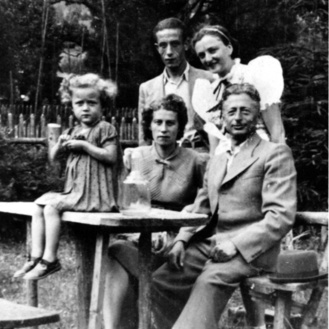
Cela her parents in the summer of 1939
Finally, Cela says, “I gave up on waiting. I sent letters to the addresses in America that Dr. Shor left with me when we separated on his way to the land of Israel. Based on their last names, they could have been my distant relatives.”
The distant relatives agreed to adopt her, and sent her a ticket for the Polish cruise ship "Stephan Batori". The ship docked at Ellis Island at the entrance to New York harbor. Cela disembarked and met Tovi Greenberg from the adopting Canadian family.
“This was the fifth family in my mother’s 11 years of life,” says her son Mitchell Goldhar. "First her real family, then the Polish family Dembinski, after that the Sayovski Polish family and then the Shor Jewish family and finally the Jewish Canadian family Greenberg.”
Upon her arrival in Canada, Cela Armel distanced herself from Poland and everything Polish. “I did everything I could to forget,” she recalls. “I did not want to remember.” She even forgot the language, or made herself forget it.
She married Leo Goldhar and the couple had three children, a daughter, Karen, and two sons, Steven and Mitchell.
Mitch Goldhar is a wealthy Canadian entrepreneur, businessman and real estate mogul (his net worth is estimated to be about $2.4 billion), who became known in Israel when he purchased the Maccabi Tel Aviv soccer club in 2009 . Since then, his name has been popping up from time to time in the media in the context of sports business.
He recently brought the 78-year-old Barbara Ribzinski, the daughter of Anila Dembinski, to Israel in his private plane along with Pavel, one of her grandchildren.
After careful examination, Yad Vashem declared Anila Dembinski and her parents Mikolai and Helena Sayovski—all since deceased—to be Righteous Among the Nations. Barbara received the awards for them at a ceremony attended by the Canadian and Polish ambassadors, after which memorial plaques in their honor were unveiled at the boulevard of the Righteous Among the Nations in Jerusalem.
“In addition to blurry memories, we had a letter sent by Dr. Shor from Israel to my mother Cela in 1957, which had a short description of her being given to the Polish teacher in the Styri public school during the German occupation. The letter also describes her transfer to another town where the mother of the teacher lived, and her being found in 1944 by Dr. Shor himself.
"'I did not have any acquaintance with your parents,' Shor emphasized in his letter to my mother. This was the initial drive for the search,” Mitch Goldhar explained what fueled his hunt for the family that saved his mother.
How did you find Barbara?
“We began searching for the family on our own with the help of organizations and lawyers that specialize in this type of things. The breakthrough only came in 2004. We, my mother and I, went to Warsaw to the offices of the Jewish Historical Institute, armed with a fading black-and-white photo of Cela with her friends in the orphanage. There, in the department for Jewish children who were hidden with Polish families, we met an elderly woman who asked to look at the photo. Something in my mother’s face aroused memories for her. She looked at it and said, 'this is my orphanage, I was also there, here I am in the picture. I am Basha do you remember?'"
Cela remembered. Basha was her friend when the two were in the orphanage outside Warsaw. The childhood relationship was renewed: every year Cela Goldhar flew in her son’s private plane to meet with Basha in Poland. They often speak on the phone.
Despite this lead, the mystery remained unsolved until about six years ago, when Barbara’s family tree was uploaded to a Polish website.
In our meeting in Tel Aviv, she tells me, “I didn't even have a clue of what my parents and their parents did during the war. My father was arrested in the Soviet Union during the dark Stalinist years, sent to a gulag work camp, and there he died of starvation and torture. My mother died in 1956 when I was 16. She did not tell me anything about her heroic acts; her life in Communist Poland was difficult enough. I was completely thrown when the lawyer hired for the search by Mitch Goldhar called me to verify I am in fact the daughter of the saviors of the Jewish girl. My family’s past hit me like a bolt out of the blue.”
How did you respond?
"With happiness and pride. I am proud of the actions of my parents and grandparents, and I am happy the girl they saved has a large family and is living a long life. My family’s sacrifice was not in vain.”
It would not be remiss to note here that the provision of safe harbor to Jews is not considered by many Polish anti-Semitic groups to be an act of heroism, rather as treason to the Polish people. Often saviors hid their past out of fear of social ostracism.
In May 2016, the two families met in Barbara Ribzinski’s current town of residence Zeszow, in the southeast of Poland, along with her children and grandchildren. Barbara and Cela fell into each other’s arms. “I felt as if I suddenly found a lost sister,” Barbara relates.
I asked her about the anti-Semitism in Poland. “In my social circle, there is no anti-Semitism,” Ribzinski says. “We do not care who is Catholic and who is Jewish—all are people, all are equal. We deeply regret what the Germans did to them in the Holocaust, and we are deeply amazed at the achievements of the Jewish State. It is unbelievable what you have done with this piece of desert.”
Her grandson, Pavel, a computer graphics professional, adds, “In my circles, we see Israel as an exceptional model of technology and knowledge. We are excited by it.”
“This is a pure and noble family,” says Mitch Goldhar. “Wonderful people, they discuss Israel with a spark in their eyes. You feel the natural warmth. Despite the language barrier that separated them, Barbara and Cela immediately clicked. Look at how they are hugging each other.”
I looked. Two elderly women falling into each other’s arms, as if it hadn't been 75 years since they played together during a time which neither of them could remember.
In an interview with Nahum Barnea in the summer of 2011, Mitch Goldhar talked about his businesses in Canada (commercial real estate and shopping centers), about his partnership with the large retail corporation Walmart and his motivation to buy the Maccabi Tel Aviv soccer club. Since then, he expanded his real estate business and change the control structure in them, expanded his fields of investment, and succeeded beyond expectations—his personal wealth almost doubled.
You serve as an active chairman of a real estate fund that has hundreds of shopping centers across Canada, valued at $9.5 bilion, and it is expanding to additional centers. Does this mean you are not concerned by online sales?
“I'm following the development of online commerce with great interest. I'm not ignoring it, nor am I burying my head in the sand. However, as of now, and for the near future, Canadian consumers like to shop at shopping centers. We have 98 percent occupancy, also due to more than 100 Walmart stores. As for the future, physical retails space, the area of stores in shopping centers, will shrink. That is clear.”
From a business perspective, Goldhar assures, this will also have its advantages: former retail space will be converted into offices and residences. The location of our shopping centers, he explains, is excellent: exclusive residential towers will be built on the huge parking lots that are characteristic of shopping centers. The real estate mix is already changing, according to him, but at a pace “much less dramatic than reported in the media.”
Israelis, as you surely saw yourself, love shopping centers, but also shop online. Will this combination continue?
“Retail commerce is changing form and developing, not retreating. The greater picture is very complicated, multifaceted. Shopping centers will not disappear. With time, and I mean not much time, a new balance will emerge between them and online commerce sites. Let’s not issue a verdict too quickly.”
In view of his real estate business, his successes with Maccabi Tel Aviv are much less impressive, and he does not hesitate to admit this. Maccabi today, he says, has things I am happy with and things I am not happy with.
Are you disappointed with your investment in Maccabi?
"No, I am not disappointed. We made progress in a number of areas—management, team spirit, a new team culture. However, from my perspective, we have not made enough progress.”
When he talks about Maccabi, Goldhar chooses his words carefully and refrains from harsh statements.
He does not disclose the sum of money that he has transferred to date for the financing of the team. However in answer to my question of whether—in view of the lessons of the last few years which did not bring Maccabi Tel Aviv the expected success—would he still have bought the team, Goldhar answered, with a definite “Yes”. Maccabi is for him, as he states, “A very long term investment. An ongoing personal social and management challenge. I am eager for its next stage”.
When I point out that the return on investment to date in “Not so great” Goldhar angrily corrects me. Not true, he says, I was able to receive a very high personal return on my investment in Maccabi. In sports, he adds, as with conquering outer space not everything is measured in monetary terms. In front of our eyes “a generation of Israeli children that will be positively affected by the Club’s values - reciprocity, partnership, dedication, adherence to rules and putting the team first over the individual”. I would wish that Israeli children would see Maccabi as a source of pride and identification”.
What about the racism issue on Israeli footballs fields?
Racism in sports is the malignant disease of our time and should be eradicated at the source. In Maccabi we have zero tolerance for racism of any sort. If we choose for professional reasons, to add an Arab player to the team, his ethnicity will not be a factor in our considerations”.
From his standpoint, the ownership of Maccabi is the same as integration into Israel without immigration to it. Goldhar: “Through Maccabi I am deeply involved in what is happening in Israel, not only in football and sports. I am exposed to many facets of Israeli life, even politics. I feel part of Israeli society”.
In the beginning of the week Mitch Goldhar invited his mother, Barbara and her granddaughter to watch a game between Maccabi Tel Aviv and Beitar Jerusalem. He had butterflies in his stomach, considering that the game was held in the opponent’s Teddy stadium, the concerns dissipated. At the end of the game (Maccabi won 2:0) thousands of spectators stood on their feet in the stadium and applauded Sela and Barbara, the Jewess and Pole at length.
Let's block ads! (Why?)
Goldhar, a tale of survival : https://ift.tt/2PKzauu
